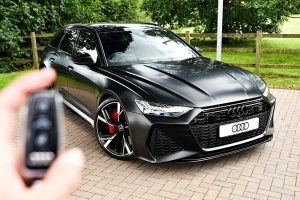Understanding Balloon Payments on Leased Vehicles for UK Small Businesses

If you’re considering leasing a vehicle for your company, you’ve probably come across the term ‘balloon payment.’ It’s a lump sum at the end of the lease that can sometimes catch you off guard if you’re not prepared. But don’t worry – we’re here to demystify the tax implications of balloon payments on leased cars and vans, so you can make informed decisions for your business. Let’s get into the details of how these payments are treated for tax purposes in the UK.
What’s the deal with VAT?
The first tax to consider is VAT. The treatment of balloon payments for VAT purposes depends on whether your lease is considered a supply of goods or services.
If your lease is classed as a supply of goods (meaning you’re expected to own the vehicle at the end), you’ll need to pay VAT upfront on the full value of the vehicle, including the balloon payment. That could be significant. But don’t panic – this might work in your favour as long as you can reclaim the VAT.
On the other hand, if your lease is treated as a supply of services (basically, a rental agreement), you’ll pay VAT on each monthly payment and on the balloon payment when you make it.
This can be easier on your cash flow, as you're spreading the VAT payments over a longer period.
Correctly classifying Corporation Tax
For corporation tax, the treatment of your balloon payment depends on whether your lease is classified as a finance lease or an operating lease.
For finance leases, where you’re expected to own the vehicle at the end, the balloon payment is treated as part of the capital cost of the vehicle. This means you can claim capital allowances on the full cost, including the balloon payment.
For operating leases, where you’re not expected to become the owner, the balloon payment is treated as an expense when you pay it, just like your monthly rental payments. This can be simpler from an accounting perspective, but you might miss out on some capital allowances.
Capital allowances are where things can get complicated
If your balloon payment is set below the expected market value of the vehicle at the end of the lease term, this suggests your agreement is more like a hire purchase. In this case, you might be eligible to claim capital allowances on the full cost of the vehicle, including the balloon payment.
And if you’re consider a shiny new zero-emission vehicle, you could be in for a treat. You might be able to claim 100% first-year allowances on these eco-friendly options. Good for your business and good for the planet.
Accounting treatment to avoid problems
How you account for your lease can impact your tax position. It all comes down to whether the lease transfers substantially all the risks and rewards of ownership to you.
If it does, it’s treated as a finance lease and capitalised on your balance sheet.
If not, it’s an operating lease and the payments are expensed each month through your profit and loss account.
This might sound a bit technical, but it’s crucial for determining how your balloon payment is treated for tax purposes. If in doubt, it’s always worth chatting with your accountant to make sure you’re on the right track.
Contact Adams Accountancy
Adams Accounting for all your finance needs
Vehicle leasing, balloon payments and tax rules can be confusing. Getting the right support before you take action means you’re in a much better position to make smart decisions for your business.
Remember, the specific tax treatment can vary based on the exact terms of your lease agreement. While we’ve covered the general rules here, it’s always a good idea to consult with your tax accountant to determine the correct treatment for your specific circumstances.
Whether you’re looking at leased cars, leased vans, or purchased cars or vans, understanding how balloon payments are treated for VAT and corporation tax can help you plan your finances more effectively.
So, the next time you’re considering a vehicle lease with a balloon payment, you can approach it with confidence. If you have questions about your purchased or leased vehicles, get in touch with the team today on 01322 250001 or contact us online.


